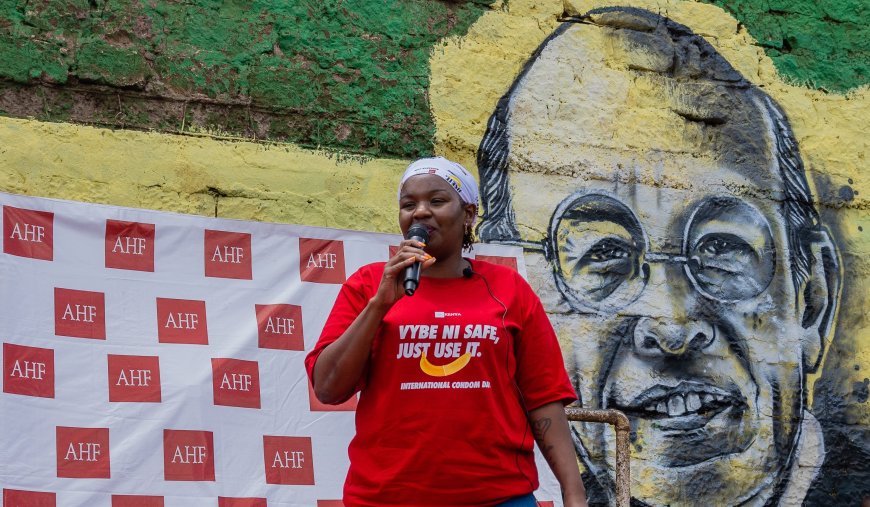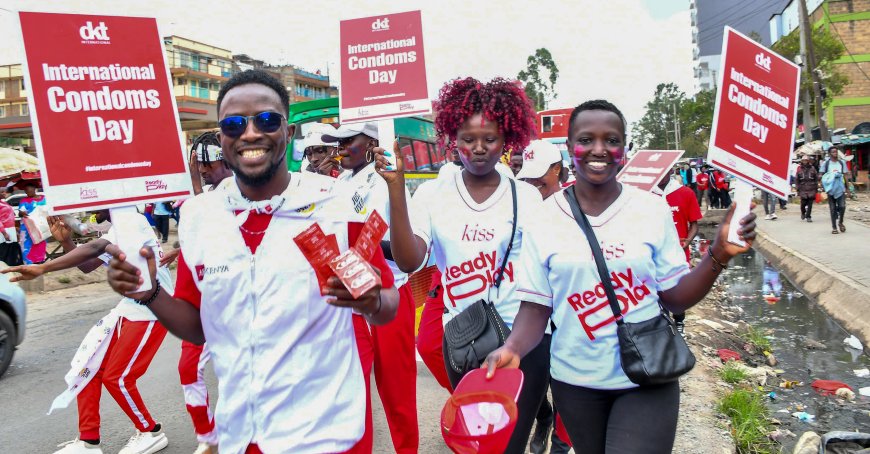Need for condom access reforms amid rising costs, declining availability

By Peter Ochieng
Every February 13, the global community comes together to celebrate the International Condoms Day (ICD), a strategic date a day before Valentine's Day to stress the importance of responsible and safe sexual behaviour.
The day was established in 2009 to promote safer sex practices and raise awareness about the importance of condom use in preventing Sexually Transmitted Infections (STIs) like HIV or AIDS and sexually transmitted diseases (STDs). Reports indicate that over 1 million STIs are being acquired globally each day.
Disturbingly, according to the AIDS Healthcare Foundation (AHF) organisation, condom access in Kenya remains a pressing challenge, worsened by declining donor funding and high taxation on condoms.
“With young people accounting for 56.8% of all new infections and a 14% unmet need for contraception, barriers to condom affordability and availability pose a significant risk to public health,” the organization says.
To address some of those challenges, AHF Kenya commemorated International Condom Day on 13 February 2025, with concurrent events in Migori, Nairobi's Mathare slums, and Kilifi.
The highlight of the event was free condom distribution, HIV and STI testing, youth-led discussions, roadshows, dance competitions, and talent showcase, all geared towards advocating for increased access to and use of condoms.
Anthony Kiplagat, Head of the HIV Program in Nairobi County speaking at the event in Mathare, emphasized the urgent need for targeted interventions among adolescents and young people.
"In Nairobi County, we have made significant strides in HIV programming, particularly in reducing new infections," he noted, adding, "However, we face a challenge among adolescents and young people aged 15–24, who account for 30% of new HIV infections each year."
Despite being a proven, cost-effective method of preventing HIV, STIs, and unplanned pregnancies, condoms in Kenya are taxed as medical devices, subjecting them to a 16% Value Added Tax (VAT), and additional import duties, which drive up costs, making condoms less affordable.
Dr Penninah Lutung, AHF Africa Bureau Chief said, "Many Africans lack access due to barriers such as stockouts, unaffordable prices, and high taxation. We call on governments and stakeholders to remove these barriers, prioritise funding, and ensure free or affordable condoms are accessible to all who need them."

This year’s commemoration takes place against a backdrop of dwindling donor funding for HIV prevention.
For instance, in 2023 alone, donor funding for HIV saw a decrease of US$358 million, forcing public health programs to scale down free condom distribution, in the process straining Kenya's condom supply, which faces a shortfall of nearly 100 million condoms annually, highlighting the unsustainable reliance on donor contributions.
To combat the taxation and funding crises, Dr. Samuel Kinyanjui, AHF Kenya Country Director, called for a "whole-market approach" to condom distribution.
"A whole-market approach to condom distribution is essential. We propose a system where 50% (200 million condoms) should be allocated for free, non-taxed distribution to lower-income individuals; 40% (150 million condoms) should be socially marketed at low cost and taxed; and 10% (50 million condoms) can be designated for the premium market without government incentives."
This year’s theme for International Condoms Day celebrations is, “Vybe ni Safe, Just Use It.”
What's Your Reaction?


































































































































































































































































































